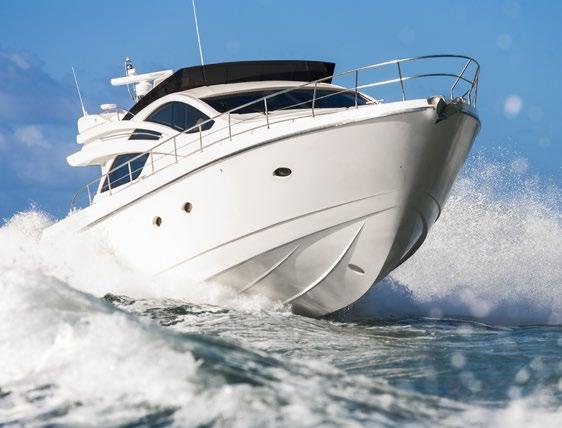
2 minute read
[New] The Prevent Defense – Before the Engine Breaks Down!
be present too – a substance to conduct electricity (the flow of ions) between the two dissimilar metals. And an excellent electrolyte is seawater, which our boats are sitting in. In the second “unnatural” case, if there is a nonfunctioning grounding system at the dockside power source, or an improper grounding of the neutral-white power conductor or just unapproved wiring near the water, there can easily be a charge snaking through the waters of the marina.
In either case, the least “noble” metal, zinc, will be there to be eaten away so your brass propeller isn’t! So check these zincs regularly. And don’t forget about the pencil zincs.
Advertisement
What pencil zincs, Bunky? Well, remember that raw (sea) water is running through your engine to cool it? It is carrying those same stray electrical charges into the innards of your engine. So, manufacturers insert “pencil” zincs into the engine where water runs through it to sacrifice themselves for the greater good – except you can’t see them like those zincs on your transom or prop shaft. So, look for them – and they are easy to find. They usually have a red or green colored hexhead bolt that screw into the engine. All you need to do is unscrew it and, if half or more of its pencil thickness is gone, get a new one in there. They are very inexpensive so you can warehouse some aboard.
Black Gold, Texas Tea - Oil
If your engine doesn’t overheat due to blocked raw water intakes, low or degraded oil will be the next culprit. Change it, and the filters, regularly. You should speak to your dock master or local surveyor about sending the old oil out for testing at least every 24-36 months. If the testers find metal shavings in the oil, the engine is wearing itself away and you need to address that. If you have more than one engine, change all the oil and all the filters at the same time. And be sure that you run the engine(s) for a goodly period of time prior to changing the oil so you get it all. It will flow like water if you heat it up. It will flow like molasses if you don’t. And write the date of the oil change with a “Sharpie” right on the filter(s.)
Seacocks
A prudent skipper will open and close all seacocks twice a season. If they won’t move, they need to be replaced. They tend to be found in out of the way places, so splash them with some household ammonia. Keeps the mold away.
BTW, if you are interested in being part of USCG Forces, email me at joinuscgaux@aol. com or go directly to the US Coast Guard Auxiliary “Flotilla Finder” at http://www.cgaux. org/units.php and we will help you “get in this thing...”

![[New] Teen Winter Fun with the Library](https://static.isu.pub/fe/default-story-images/news.jpg)






